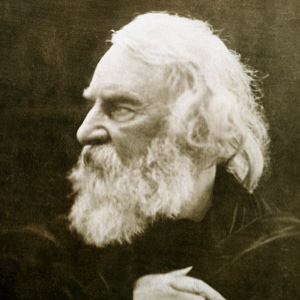
Henry Wadsworth Longfellow (1807 – 1882) was an American poet, educator, and translator. He grew up in the thriving coastal city of Portland, Maine, spending much of his summers at his grandfather’s farm. His first poem was published in the Portland Gazette in 1820. Two years later, at the age of fifteen, he enrolled at Bowdoin College in Brunswick, Maine. Before graduating in 1825, he published nearly 40 poems in various newspapers and magazines. Following three years of travel through Europe, he returned to Bowdoin College to work as a professor. He was later employed at Harvard for several years before retiring in 1854. Paul Revere’s Ride, The Song of Hiawatha, and Evangeline, are just three of a vast number of well-known poems written by Longfellow.

Quotes by Henry Wadsworth Longfellow…
A Psalm of Life
Tell me not, in mournful numbers,
Life is but an empty dream!
For the soul is dead that slumbers,
And things are not what they seem.
Life is real! Life is earnest!
And the grave is not its goal;
Dust thou art, to dust returnest,
Was not spoken of the soul.
Not enjoyment, and not sorrow,
Is our destined end or way;
But to act, that each to-morrow
Find us farther than to-day.
Art is long, and Time is fleeting,
And our hearts, though stout and brave,
Still, like muffled drums, are beating
Funeral marches to the grave.
In the world’s broad field of battle,
In the bivouac of Life,
Be not like dumb, driven cattle!
Be a hero in the strife!
Trust no Future, howe’er pleasant!
Let the dead Past bury its dead!
Act — act in the living Present!
Heart within, and God o’erhead!
Lives of great men all remind us
We can make our lives sublime,
And, departing, leave behind us
Footprints on the sands of time;
Footprints, that perhaps another,
Sailing o’er life’s solemn main,
A forlorn and shipwrecked brother,
Seeing, shall take heart again.
Let us, then, be up and doing,
With a heart for any fate;
Still achieving, still pursuing,
Learn to labor and to wait.
No one is so accursed by fate, no one is so utterly desolate, but some heart, though unknown, responds unto his own.
If we could read the secret history of our enemies, we should find in each man’s life sorrow and suffering enough to disarm all hostility.
To be strong is to be happy.
Great men stand like solitary towers in the city of God, and secret passages, running deep beneath external nature, give their thoughts intercourse with higher intelligences, which strengthens and consoles them, and of which the laborers on the surface do not even dream.
So Nature deals with us, and takes away our playthings one by one, and by the hand leads us to rest.
Who dares to say that he alone has found the truth?
Patience is powerful.

